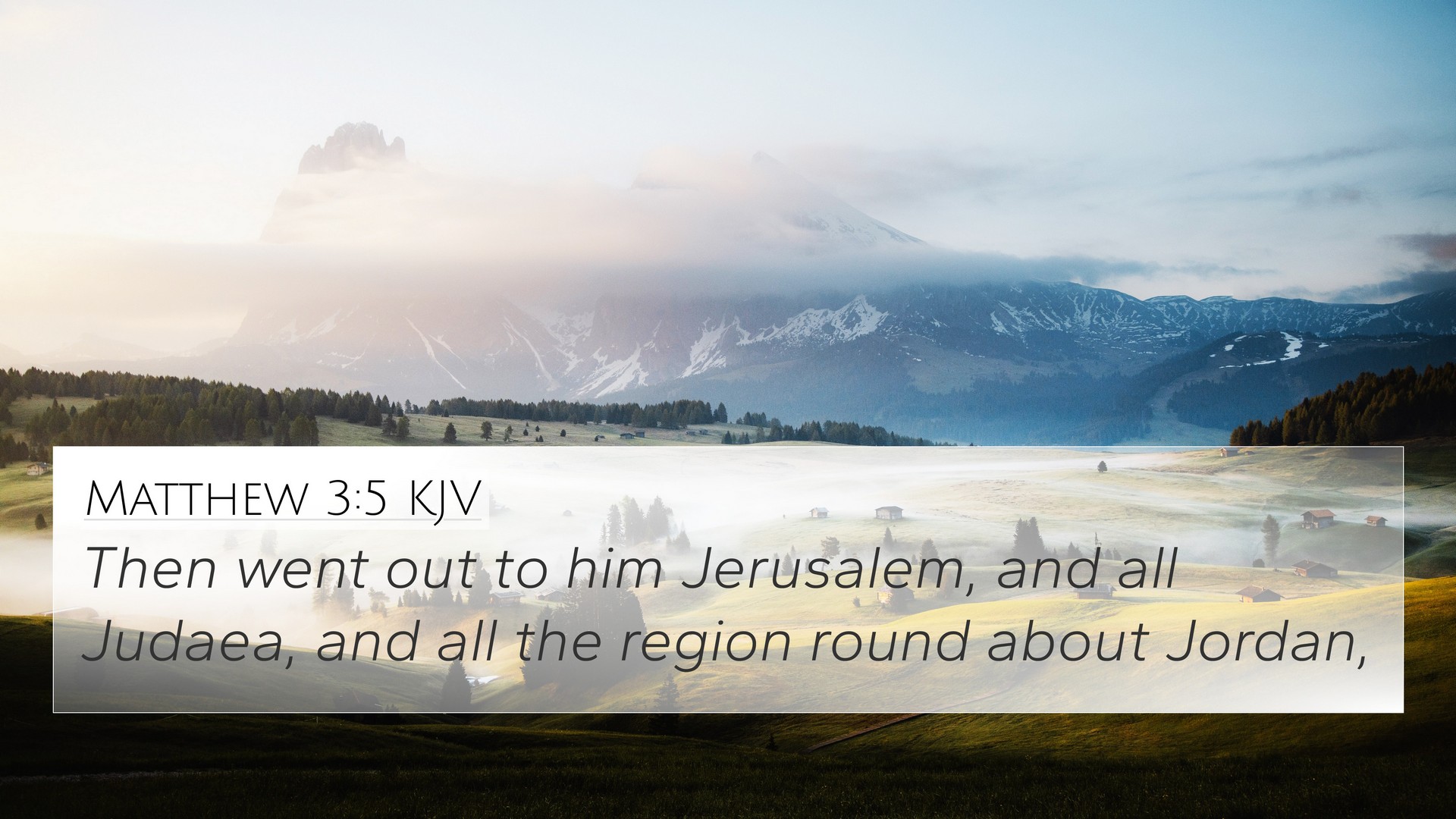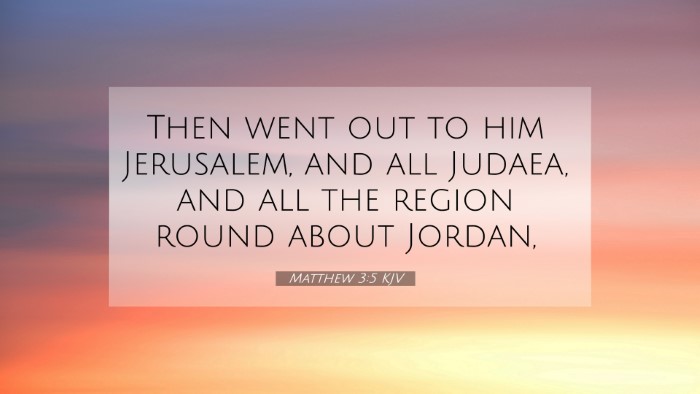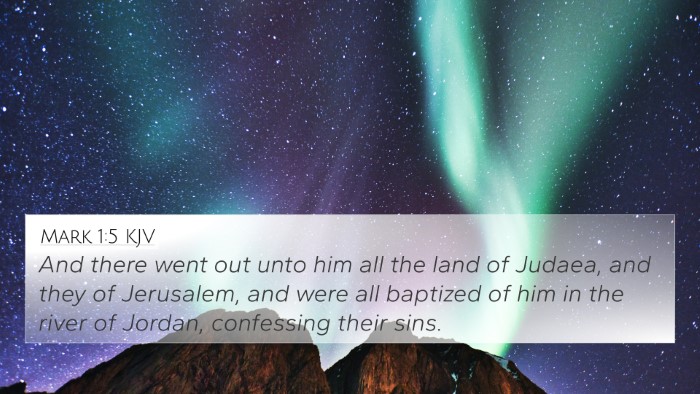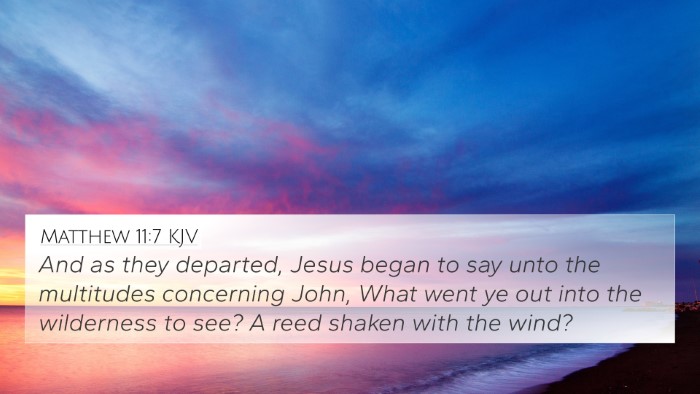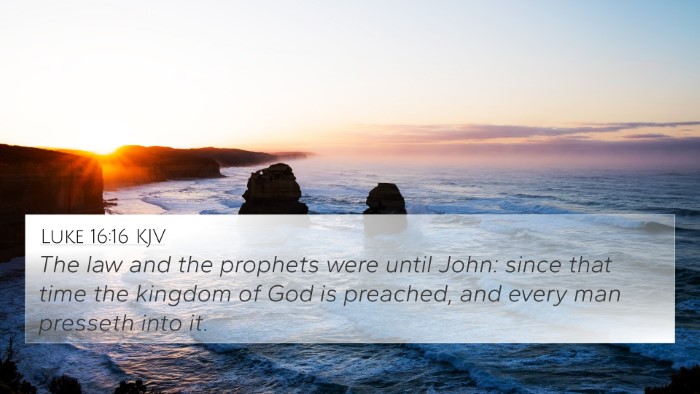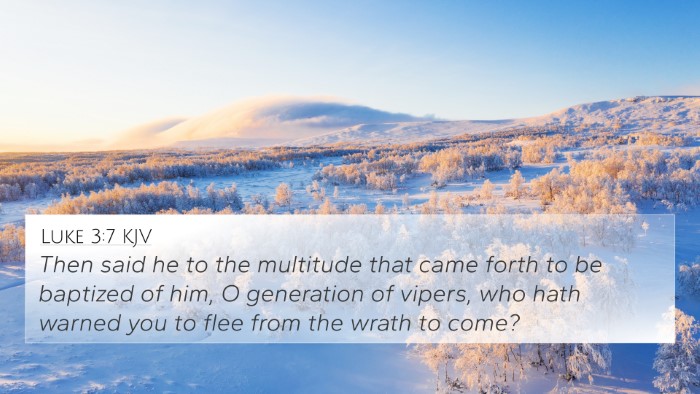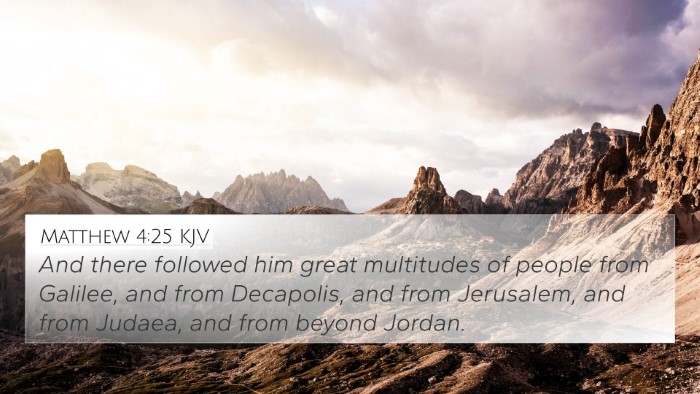Bible Verse Meaning: Matthew 3:5
Verse: "Then went out to him Jerusalem, and all Judaea, and all the region round about Jordan," (Matthew 3:5)
Overview and Context
This verse sets the stage for the ministry of John the Baptist as heralding the coming of Christ. John’s call for repentance captivated not just a small number but a vast crowd. Matthew highlights the extensive reach of his influence and the spiritual hunger of the people.
Commentary Insights
- Matthew Henry: Matthew Henry emphasizes the significance of the geographical scope of John’s ministry. He notes that the people of Jerusalem and all Judea were drawn to John's message, indicating a move of God in the hearts of the people. The drawing out of the masses showcases the profound desire for spiritual renewal.
- Albert Barnes: Barnes highlights the theme of gathering and preparation. He interprets the multitude coming to John as an indication of their readiness to repent and seek forgiveness. This action also foreshadows the later gathering of followers of Christ, establishing a theme of repentance as foundational in the Gospel message.
- Adam Clarke: Clarke expands on the geographical significance, noting that the Jordan region was pivotal in the Jewish consciousness as a site of historical importance. He points out that the movement towards John signifies a communal acknowledgment of sin and the need for personal and national cleansing.
Thematic Connections
Matthew 3:5 illustrates themes of repentance, preparation, and spiritual awakening evident throughout the Bible. The seeking of John highlights a hunger for God across the ages.
Related Bible Cross-References
Understanding Matthew 3:5 is enhanced by examining related verses. Here are significant cross-references:
- Isaiah 40:3: "The voice of him that crieth in the wilderness, Prepare ye the way of the Lord..." - This prophecy speaks directly to John's role as a forerunner to Christ.
- Mark 1:5: "And there went out unto him all the land of Judaea, and they of Jerusalem, and were all baptized of him..." - This New Testament parallel emphasizes the same widespread response to John's message.
- Luke 3:7: "Then said he to the multitude that came forth to be baptized of him, O generation of vipers..." - John's call for repentance is a direct challenge to the people's complacency.
- John 1:29: "The next day John seeth Jesus coming unto him, and saith, Behold the Lamb of God..." - This verse connects to the culmination of John's ministry in recognizing Jesus as the Messiah.
- Acts 19:4: "Then said Paul, John verily baptized with the baptism of repentance;..." - This serves to clarify the continuation of the message of repentance well into the Acts of the Apostles.
- Matthew 11:7-10: This passage speaks to the greatness of John the Baptist and his role in God's redemptive plan, reinforcing the acknowledgment of his significance.
- James 4:8: "Draw nigh to God, and he will draw nigh to you..." - A reflection of the need for individuals to approach God, much like the multitude drew near to John for baptism.
Generating Deeper Understanding Through Cross-Referencing
When studying scripture, cross-referencing Biblical texts like Matthew 3:5 not only reveals its immediate context but also highlights its significance within the broader narrative of the Bible.
These thematic Bible verse connections share a common thread—each emphasizes the call to repentance and preparation for the coming of the Lord, bridging historical context with New Testament fulfillment.
Tools for Bible Cross-Referencing
Utilizing a Bible concordance or Bible cross-reference guide can enhance your study, providing insights into how various scriptures interconnect, revealing the comprehensive narrative of Scripture.
Consider employing cross-referencing Bible study methods to engage more deeply with the text. Such methods facilitate understanding of individual verses in light of the complete Biblical narrative and themes.
Conclusion
This examination of Matthew 3:5 underlines the importance of community response to spiritual leadership and the critical theme of repentance that threads through both the Old and New Testaments. The intercessory role of John the Baptist serves as a powerful reminder of God's plan to reconcile humanity, making this verse pivotal in understanding Christ's mission.
